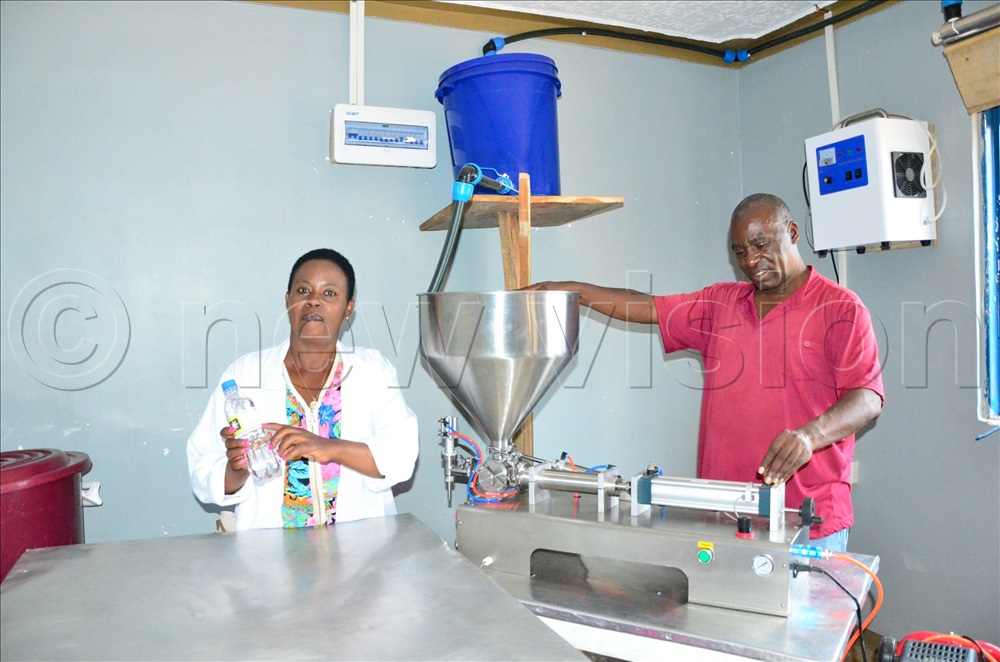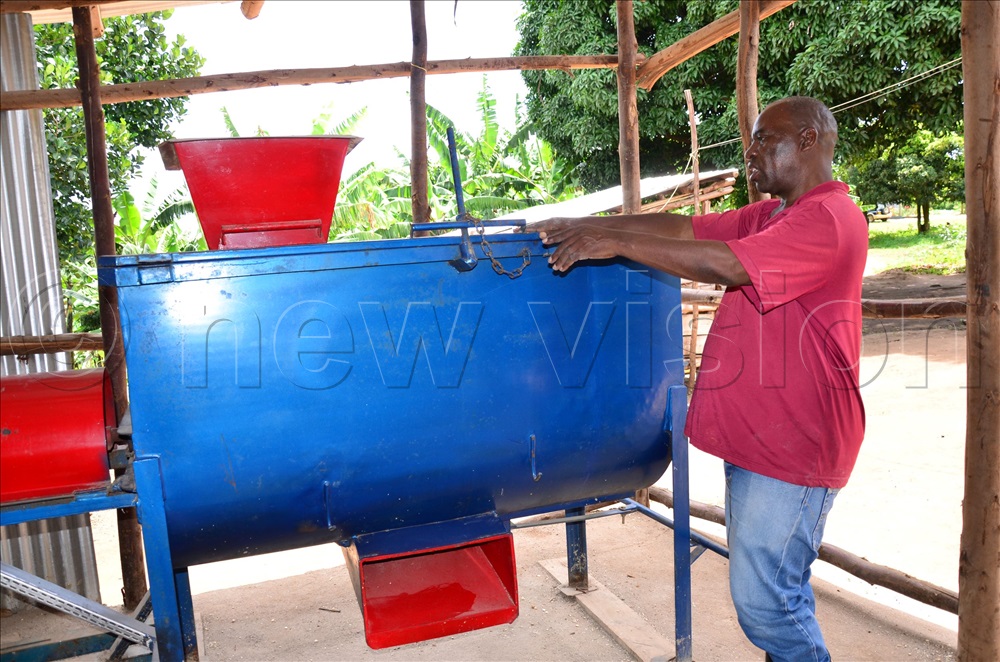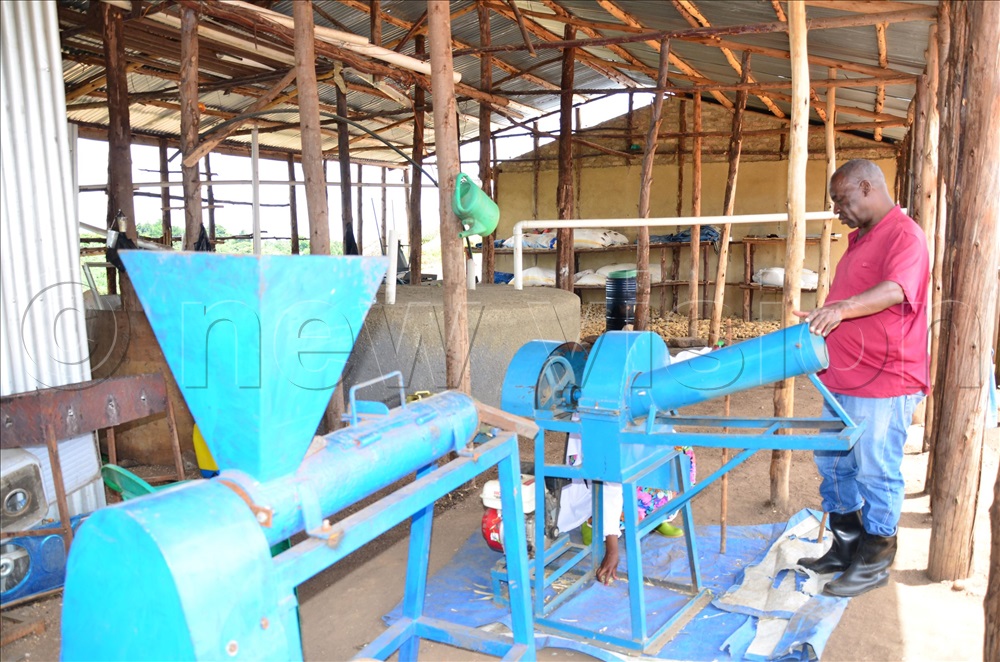By Umar Nsubuga
The revamping of the Renewable Energy for Food and Water Engineering (REFWE) farm in Kyegegwa district has not only changed the face of the facility but has also turned it into a learning centre.
Innovation remains one of the top issues among commercial farmers.
REFWE, now known as the ‘Centre of Excellence for Agribusiness and Solar Engineering’, has a farm which is a must-visit for any advanced farmer.
REFWE centre has renewed efforts to promote food security and technology. It is not just about growing food for domestic consumption, but also value-addition purposes.

Agricultural centre
REFWE is one of the institutions changing the farming landscape in Toro region. It runs a circular enterprise consisting of Animal husbandry (cattle, goats, piggery, poultry), crop husbandry (maize, matooke, beans, soybeans, avocados, mushrooms) and an engineering service that enables the two to feed into each other, closing a golden circular loop of practically zero waste.
Prof Kant Kanyarusoke, the director of REFWE farm says agriculture in Uganda is to continue being a key driver of growth, for example, at REFWE, mechanisation and subsequent complementation by value-addition processes are essential to derive its full benefits.
REFWE farm started serious farming four years ago and it sits on 70 acres.

However, it brings modernity and integration of quite diverse activities on one rural site. A walking tractor, rainwater harvesting, solar-powered water and ice processing and packaging, solar-powered irrigation, harvest and post-harvest machinery, milking and milk processing machinery, a micro maize mill, an animal feeds and pelleting micro factory, solar dryers and storage silos, a briquetting machine that eliminates solid agro-wastes among others, gives Kyegegwa the potential of an Agrotourism district.
What is unique about these machines is that most of them were developed and manufactured by Prof Kanyarusoke and his team.
He and his wife Sheila Kanyarusoke invested portions of their retirement benefits from South Africa and Botswana to set up the enterprise. They aim to make a significant contribution to the import substitution of agricultural machinery.
Mechanisation
Having travelled widely on four continents, Kanyarusoke says the lack of agricultural mechanisation is one of the biggest hindrances to transforming Uganda’s agriculture from subsistence to commercial/industrial.

His advice to Ugandan farmers is that they should drop rudimentary tools and mechanise their farms if they are to produce competitively.
“But to effectively mechanise agriculture, land fragmentation must stop,” he says.
The economics and practicality of mechanisation need consolidated tracts of land under one crop.
Even smaller machines made by REFWE, require a sizeable crop to keep them busy most of the time.
At the moment, REFWE makes and sells solar dryers, storage silos, and animal feeds including silage machines among many others.
So far, the main customers have been commercial farmers, non-government organisations and some secondary schools.
With the public getting more aware of the dangers of aflatoxins in foods for both humans and animals/birds, together with the instability of farm-gate prices, the company expects more enquiries on all their machines, including the value adders like vegetable oil presses and cold rooms for the high perishables like tomatoes and fruits.
Meanwhile, local farmers in Bulingo parish are learning modern farming methods from REFWE.
“We pledge to put into practice the lessons learnt and ensure we produce as good products as REFWE’s,” Harriet Atugonza, from Bulingo village said.
Challenges
Two of the biggest problems in Kyegegwa district are the lack of grid electricity off the interdistrict roads and the absence of a piped water supply.
The road network is also unsatisfactory during the rainy seasons. REFWE tries to overcome the water problem by water harvesting, adequate storage and water treatment.
The other challenge is of lack of skilled workers in the village.
REFWE farm employs about 30 people but of these, only one received formal technical training while another leant on the job. The Engineering Division is better staffed – with graduates and technicians but most of the time these staff are in the field, off the farm.
In the not-too-far future, the company wants to demonstrate and spread the idea of rural cottage industries as a way of accelerating society’s transformation on a mass scale.





